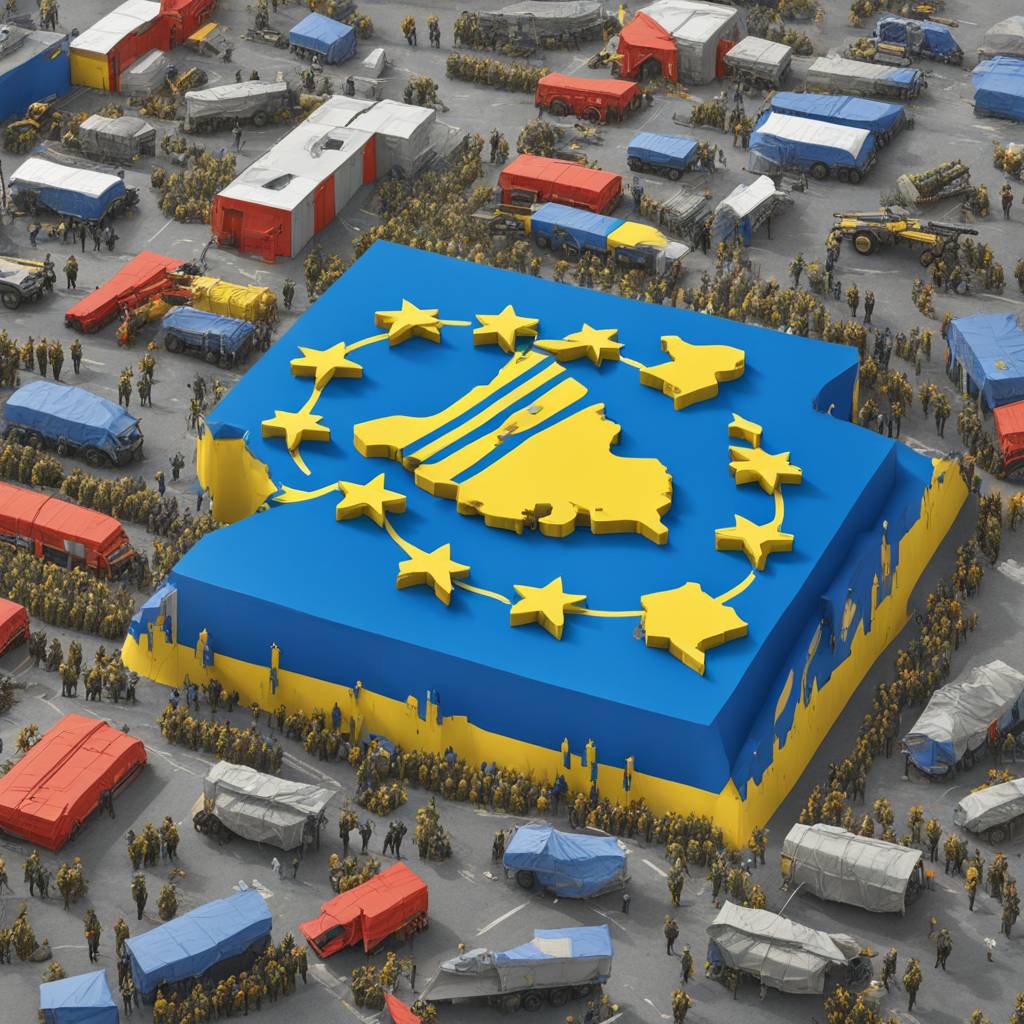European Union countries have reached a hard-fought deal to boost and revamp military assistance to Ukraine, injecting an additional €5 billion into the European Peace Facility (EPF) until the end of the year. This comes in addition to the €6.1 billion committed since early 2022. The EPF was initially established after Russia’s war as member states rushed to provide Kyiv with military equipment from their national stocks. However, the facility had begun to lose steam in 2023 as stocks depleted, and governments shifted to bilateral donations rather than collective contributions. Discussions on reforming the EPF to make it more efficient and tailored to Ukraine’s needs became entangled in political considerations, but a compromise was eventually reached after various concessions.
The compromise reached in Brussels addresses key concerns from member states, allowing for priority to be given to EU-made weapons while also allowing for the use of alternatives from abroad when necessary. A portion of the €5 billion will be used for joint purchases of military equipment, in line with EU strategy. The revamped EPF will also enable countries to consider the value of their bilateral donations, recalibrating their monetary contributions accordingly. This move aims to revive collective donations and alleviate political tensions caused by disparities in military assistance to Ukraine. Germany leads in donations with €17.7 billion, followed by Denmark and the Netherlands. However, three major countries lag behind significantly in donations, prompting efforts to increase support and coordination.
In addition to the EPF deal, the Czech Republic has initiated a project to procure artillery shells from non-EU producers to aid Ukraine. Initially planning to acquire 800,000 shells, the number was later reduced to 300,000. This project operates outside of the EPF and has garnered support from 18 countries. This initiative underscores the continued efforts by EU countries to provide military assistance to Ukraine in a timely and effective manner. The ongoing challenges on the battlefield, including a recent setback in Avdiivka, highlight the urgency and importance of strong and coordinated support for Ukraine.
The initial challenges faced by the EPF, including a Hungarian veto and disagreements between member states, led to a period of stagnation in collective military donations. The agreement reached in Brussels aims to reinvigorate collective efforts and streamline the process of providing military assistance to Ukraine. By incorporating the value of bilateral donations and allowing for flexibility in weapon procurement, the EU hopes to improve the efficiency and impact of its support. The diplomatic efforts and compromises made to reach this agreement demonstrate the seriousness and commitment of EU countries to stand by Ukraine in its time of need.
The latest developments in military assistance to Ukraine come against a backdrop of continued conflict and pressure on Western allies to provide adequate support. The EU’s efforts to bolster the EPF and enhance coordination in military assistance reflect a broader commitment to supporting Ukraine in its defense against Russian aggression. The ongoing debates and initiatives to strengthen support for Ukraine, both through the EPF and outside projects, highlight the complexities and challenges involved in navigating the geopolitical landscape. Moving forward, it will be crucial for EU countries to continue working together to ensure that Ukraine receives the necessary support to defend its sovereignty and territorial integrity.













